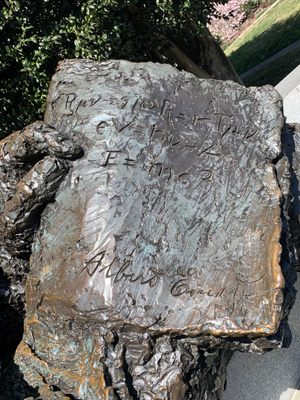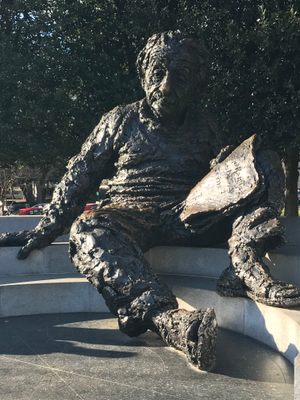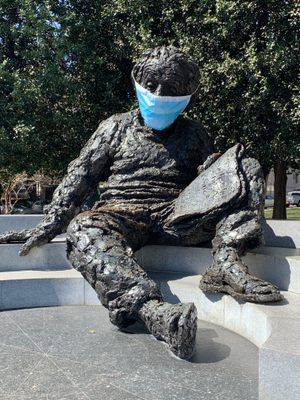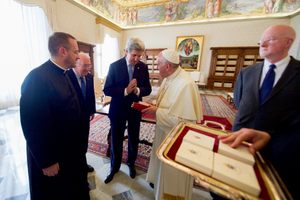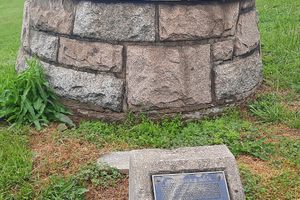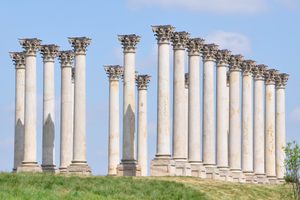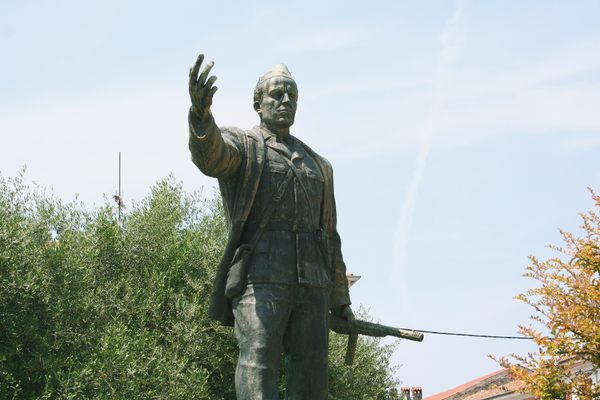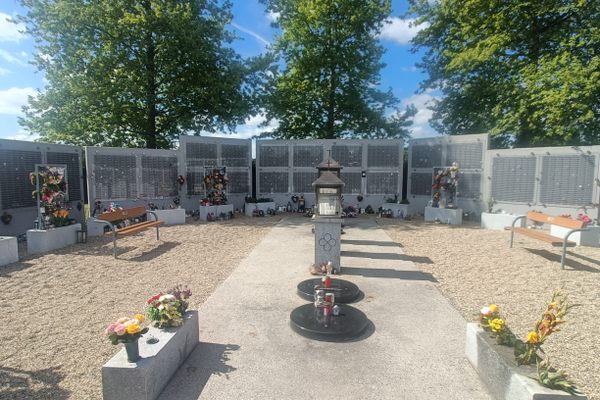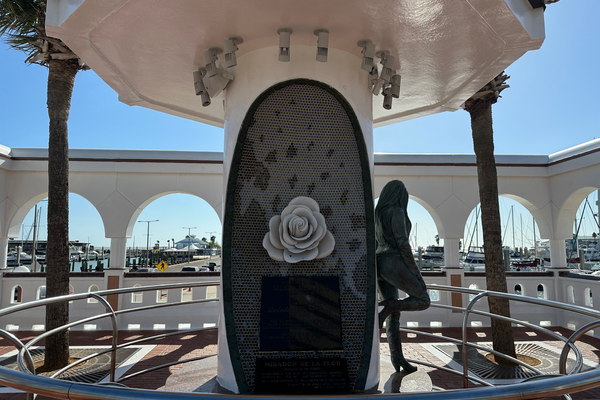About
Just steps away from the Vietnam Memorial, Federal Reserve and State Department, the National Academy of Sciences (NAS) has some of the most respectable real estate in Washington, D.C. It also has one of the District's most beloved statues, unveiled in 1979 to celebrate the 100th birthday of Albert Einstein.
The statue is triple-sized, cast in bronze, and oh so inviting to sit on. Created by sculptor Robert Berks, the head is modeled on a bust that the artist sculpted at the scientist’s home in Princeton in the 1950s. The giant bronze genius is relaxed, holding a tablet that sketches out three of his most important scientific contributions: the photoelectric effect, the theory of general relativity, and the equivalence of energy and matter.
Einstein was elected to the NAS in 1922, a year after he won the Nobel Prize in physics. His citizenship at the time is a little complicated (he was naturalized Swiss but German-born, and also claimed by the Weimar Republic), and since only U.S. citizens can be elected as full members, he entered as a “Foreign Associate.” In 1940 he became a citizen of the United States, and two years later was elected as a full member, serving the NAS mission until his death in 1955.
The NAS is a private, nonprofit organization of scientists, engineers, and doctors, created to provide “independent, objective advice to the nation on matters related to science and technology.” It’s fitting that it is also within sight of the Lincoln Memorial—the agency was created by Congress in the middle of the Civil War, in an act signed by President Lincoln himself.
Rumor has it if you rub Einstein's nose some of his genius will rub off on you.
Related Tags
Know Before You Go
This bronze statue of Albert Einstein is tucked away among some trees outside the National Academy of Sciences. It's located across the street from the National Mall, within walking distance of the Vietnam and Lincoln Memorials. Pictures with Albert are welcome by the NAS. The NAS is also a short walk to the Kennedy Center for the Performing Arts, where there is another piece by sculptor Robert Berks–the famous bust of JFK. The statue also has a fun "easter egg:" if you stand exactly in the middle of the star chart, face Albert, and speak (or sing or yodel) there is a neat echo effect.
Community Contributors
Added By
Published
October 20, 2016






